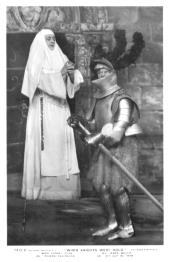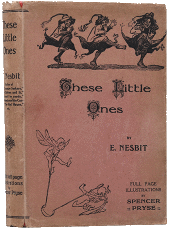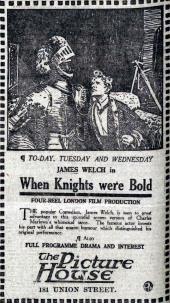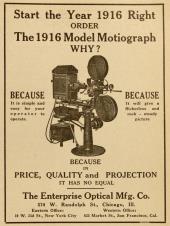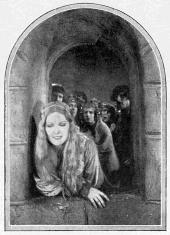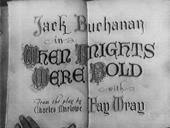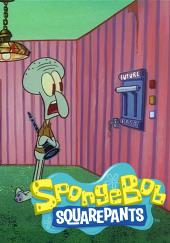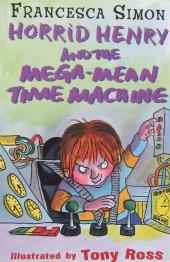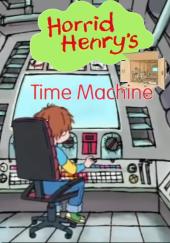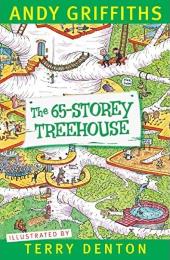Play
When Knights Were Bold
- by Harriet Jay and Robert Buchanan
- (at the Theatre Royal, Nottingham, UK, 17 September 1906)
The plot of . . . “When Knights Were Bold,” is more or less original as modern comedies go. It circles round the love affair of a man and a maid. In the first act, a very twentieth century one, the hero, despite the pronounced encouragement of the heroine, fails to screw up his courage to the proposing point. When alone he can declare his love manfully enough, but in the maid’s presence he becomes as shy as an early Victorian school miss. As the curtain falls, he writes himself down as an ass, takes a big drink, smokes a cigarette, and—dreams.
Act II represents the dream. It is the medieval age—the age of chivalry, of bold, bad barons and gallant knights. An ancestor of the hero is one of these latter. His love story is depicted vividly. There is nothing lackadaisical about the lovemaking. The bold knight finally seizes the maiden in his arms and carries her off bodily to the altar in the face of strenuous opposition.
In act III the twentieth century again appears. There hero wakes up and follows, so far as modernity will let him, the example of his ancestory shown him in the second act.
— San Francisco Call, 14 December 1906
Act II represents the dream. It is the medieval age—the age of chivalry, of bold, bad barons and gallant knights. An ancestor of the hero is one of these latter. His love story is depicted vividly. There is nothing lackadaisical about the lovemaking. The bold knight finally seizes the maiden in his arms and carries her off bodily to the altar in the face of strenuous opposition.
In act III the twentieth century again appears. There hero wakes up and follows, so far as modernity will let him, the example of his ancestory shown him in the second act.
— San Francisco Call, 14 December 1906
Sadly, we haven’t tracked down the script (possibly because it was never published), but we know from several reviews that the modern day Sir Guy loathes the very mention of days of old.

